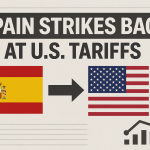Now Reading: Why You Should Test Ideas in Small Steps Before Scaling
-
01
Why You Should Test Ideas in Small Steps Before Scaling
Why You Should Test Ideas in Small Steps Before Scaling

Embarking on a new idea or business venture is often an exhilarating experience. The enthusiasm to see your concept flourish can make it tempting to go all-in right from the start. However, jumping straight into large-scale implementation without proper testing can be risky. Many entrepreneurs and organizations have learned the hard way that not every idea works as envisioned, and scaling prematurely can lead to significant setbacks. That’s where the strategy of testing ideas in small, manageable steps comes into play—a method rooted in validation, learning, and adaptability.
Small-step testing involves breaking down a larger vision into smaller experiments or pilot programs to validate assumptions, refine offerings, and gather feedback before committing substantial resources. This approach acts as a safety net, minimizing potential losses while maximizing insights. It aligns with the core principle that understanding your market, your product, or your service in incremental stages provides a clearer, more confident path to growth.
Why Testing Ideas in Small, Iterative Phases Is Essential for Sustainable Growth and Long-Term Success
Avoiding Pitfalls of Overcommitment
One of the biggest dangers in scaling too quickly is overcommitment—investing heavily in a product or strategy before knowing whether it truly resonates with the intended audience. When organizations launch full-scale operations prematurely, they risk investing resources into features, marketing channels, or customer segments that might not be viable. Small-scale testing allows you to gauge real-world responses, detect flaws early, and pivot if necessary. Instead of throwing all your eggs into one big basket, you test different aspects—such as pricing models, messaging, or features—in controlled, low-stakes environments.
Leveraging Feedback to Refine Your Offering
Feedback is the cornerstone of successful iteration. When you test ideas incrementally, you get the advantage of immediate, actionable insights from real users or customers. This ongoing feedback loop helps identify pain points, preferences, and unmet needs—information that is invaluable for refining your product or service. For instance, a startup might roll out a minimal viable product (MVP) to a small group, analyze user behavior, and adjust accordingly before expanding. This iterative process ensures that the final offering closely aligns with what your audience actually wants and needs, greatly improving your chances of success.
Building Resilient Strategies Through Incremental Learning
Change is inevitable, especially in dynamic markets or emerging industries. Small-step testing encourages a culture of learning and resilience. Each experiment serves as a learning opportunity, whether it’s a success or a failure. Over time, these small wins and losses inform your broader strategy, making it more adaptable and resistant to unforeseen disruptions. This approach promotes a mindset of continuous improvement, reducing the fear of failure and empowering teams to innovate confidently.
Practical Benefits of Testing Ideas in Small Steps
- Time and Cost Savings: By validating ideas early, you prevent unnecessary expenditure on ideas that may not work. If a concept doesn’t perform as expected during initial tests, you can pivot or scrap it without significant sunk costs.
- Increased Confidence in Your Strategy: Small experiments provide evidence-based insights that help you make informed decisions about scaling. Knowing which features or approaches resonate with your audience minimizes the risks associated with big bets.
- Enhanced Customer Trust and Engagement: Iterative releases and refinements demonstrate that you value customer feedback and are committed to improving their experience. This transparency can foster loyalty and advocacy.
- Faster Market Adaptation: Small steps enable you to respond quickly to changing market conditions or technological advancements, maintaining agility and competitiveness.
Transforming the Scaling Journey into Manageable, Learnable Phases
The traditional mindset of “launch and scale” often leads to overwhelming complexity and risk. In contrast, adopting a phased, test-driven approach transforms this journey into a series of manageable, learnable stages. Each phase builds on the previous one, grounded in real-world data and insights, enabling you to optimize with confidence.
For example, a tech startup might start with a basic prototype to gather initial user feedback, then iteratively add features based on actual needs. An e-commerce business might pilot new marketing channels on a small budget before expanding successful campaigns. This disciplined approach turns what could be a daunting leap into a strategic sequence of small, deliberate steps.
Conclusion
Testing ideas in small, incremental phases isn’t just a prudent strategy—it’s a fundamental methodology for sustainable growth and long-term success. By avoiding the pitfalls of overcommitment, leveraging real feedback, and building resilient strategies, organizations can navigate the uncertainties of launching new ideas with confidence. This approach minimizes risks, maximizes learning, and paves the way for more informed, effective scaling.
Instead of rushing into big launches and sweeping overhauls, embrace the philosophy of small steps. Every experiment, every piece of feedback, and every iterative change brings you closer to a product, service, or strategy refined with insight and agility. In today’s fast-paced, ever-changing markets, the ability to adapt quickly and learn continuously is often the secret difference between those who thrive and those who falter. Small steps lead to big successes—if you’re willing to take them.









